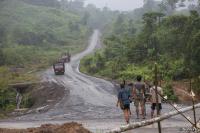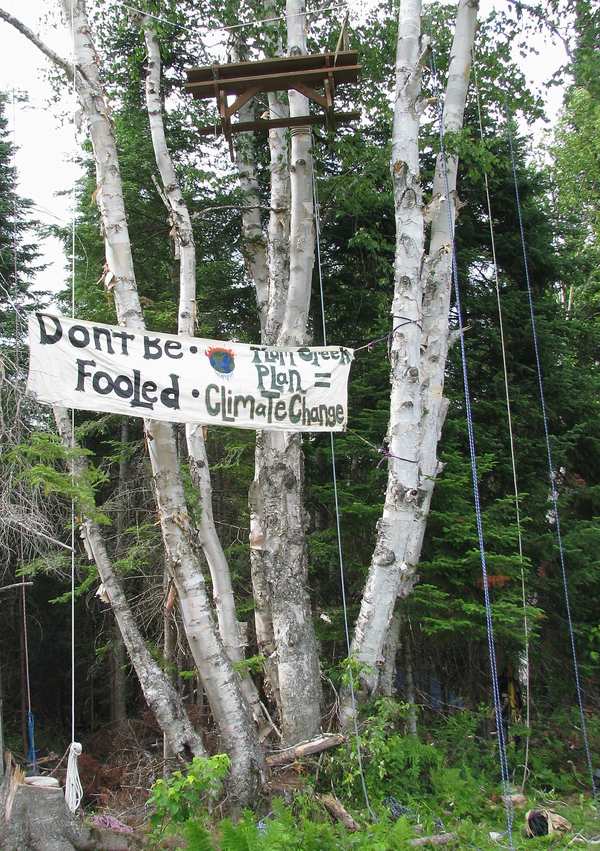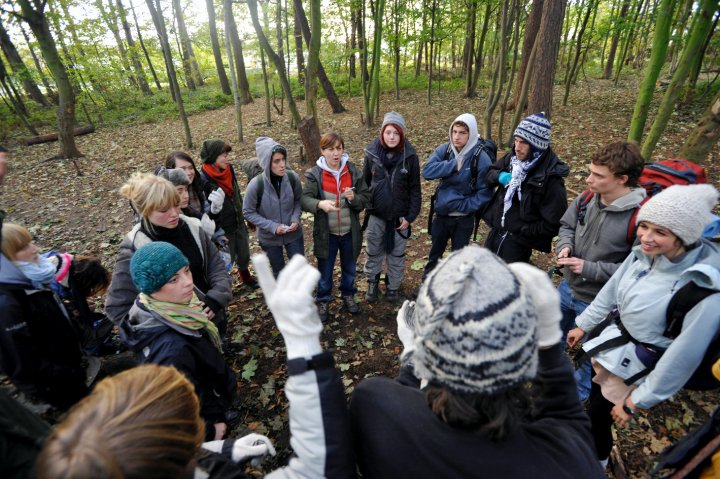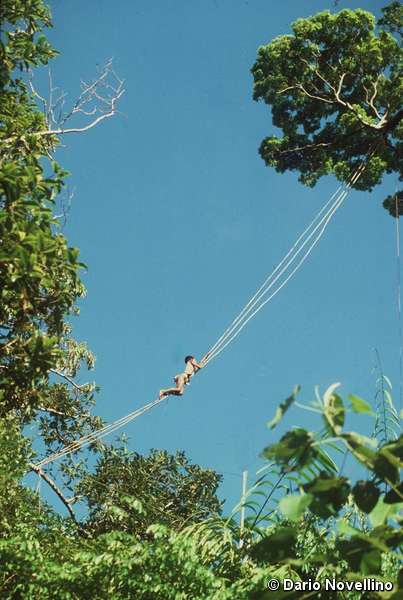
Dozens of heavily armed Police and State Troopers have raided the peaceful defenders camp at Eagle Rock in Michigan’s Upper Peninsula; “crushing” the month-long effort to protect the sacred site from a controversial sulfide mine.
Raid at Eagle Rock; Two campers arrested, camp destroyed
BIG BAY, Mich. – The defenders of sacred Eagle Rock sat in a circle and wept as they were surrounded by dozens of heavily armed state and local police officers who raided the Eagle Rock encampment the morning of May 27 arresting two campers at the request of Kennecott Eagle Minerals, who wasted no time destroying the month-old camp to make way for their nickel and copper mine.
Witnesses say there were about six people at Eagle Rock when police moved in including four campers who had spent the night and two supporters who arrived with a warning the raid was imminent. Armed with high-powered rifles, Michigan State Police and mine security could be seen atop Eagle Rock scanning the vast Yellow Dog Plains with binoculars apparently looking for trespassers.
Two handcuffed campers, who refused to leave when ordered by police, were taken away by sheriff’s deputies and driven nearly one hour to the Marquette County Jail and were released on bond. Arrested were Keweenaw Bay Indian Community members Chris Chosa, 28, and Charlotte Loonsfoot, 37, both of Baraga, Mich.
Loonsfoot was one of three women who set up the encampment April 23 protesting the arrest three days earlier of environmentalist Cynthia Pryor and hoping to protect Eagle Rock from the Eagle Project nickel and copper mine. Despite federal treaties that allow Ojibwa to hunt, fish and gather on the Yellow Dog Plains, the state of Michigan leased the land to Kennecott to open a sulfide mine. The mine portal is planned near the front of Eagle Rock and the tunnel will travel underneath the rock.
“Today, we got a message in camp that police were on their way,” said non-Native camper Catherine Parker of the warning from two members of the Yellow Dog Watershed Preserve who arrived shortly before police. “Charlotte and Chris had no intention of leaving voluntarily.”
Parker said the Eagle Rock defenders wept for the land as they sat in a circle.
“There were a lot of tears and passionate remarks because the people have come to care a lot about each other out here,” said Parker of Marquette, Mich. “We have all been working together, Native Americans and whites to protect something that is tremendously important to us.”
After police arrived, “we stayed as long as we could, we kept asking to stay with our friends (Chosa and Loonsfoot),” said Parker, wiping away a tear. “We sat down with them repeatedly, we were pushed verbally numerous times by law enforcement.”
“It’s breaking my heart,” said a crying Parker as she witnessed heavy equipment roaring up the entrance to Eagle Rock. “This mine is not going to perform (safely) as they say it will. What is going to happen if the mine collapses into the Trout Salmon River?”
Police from several agencies “literally surrounded us in a big circle,” said Kalvin Hartwig, a member of the Sault Ste. Marie Tribe of Chippewa who spent the night of May 26 at Eagle Rock but was not arrested after agreeing to leave the property with his car.
When police arrived, “three of us and two visitors were down by the sacred fire and another one of our campers (Charlotte Loonsfoot) was up on the hill fasting,” Hartwig said. “I think this whole situation is pretty sad.
“The water and this land is at-risk. These people (Kennecott) are here illegally about to destroy it.”
According to the Save The Wild UP Web site, about 20 police cars were sent and warned to expect a riot that never occurred. Many supporters and the media rushed to the scene after hearing the Powell Township emergency personnel dispatched with instructions to stage at the main entrance to the mine including an ambulance and fire trucks. No injuries were reported.
Atop a pole at the entrance to the camp, a lone eagle feather fluttered in the dusty wind as heavy equipment moved in. Mine officials doused the grandfather fire, uprooted the Eagle Rock Community Garden, removed two flags from atop Eagle Rock and bulldozed the camp.
Deputies blocked the dusty, remote, seasonal Triple A Road at the mine entrance but allowed the media and campers to walk the three-quarters of a mile to the former entrance to the camp that was blocked by heavy machinery as mine employees erected a metal cyclone fence. The media was not allowed to see the remains of the encampment.
“They are putting up a fence and they are wrecking our garden we planted,” said Gabriel Caplett, who has posted daily updates about the campers activities on the Stand for the Land Blog and has written countless stories about the fight to stop the mine since it was announced in 2004. “They are putting out the sacred fire” that has burned since the first night.
There was no word on what happened to the tents and a large cache of food and other supplies donated by supporters. About 10 campers spent the night of May 25 at Eagle Rock, but several left to prepare for activities planned at the rock for Memorial Day weekend.
Two non-Native campers, not present for the raid, broke into tears while walking to Eagle Rock.
“It’s heartbreaking, it’s really disconcerting to feel the rights of the corporations have been put above and beyond the rights of the people,” said Amy Conover of Marquette, Mich. When politicians “get into power they don’t act on behalf of the people, they act on behalf of the money.”
A Detroit native attending nursing school in Marquette said she “can’t understand how hardened the hearts have become of the people who are doing this.”
“To not feel how wrong it actually is – is a very scary thing,” said Laura Nagle. “The police officer said this is a ‘bummer’ this was happening, it is not a bummer, it is a catastrophe, a tragedy and a misfortune for us all. This can still be stopped.”
 On Monday July 12th, Earth First! held a large protest outside of the Forest Service office on Zillicoa St. in Asheville to protest the commercial logging of national forests and their continued plan to cut the Globe Forest in Blowing Rock, NC. One member u-locked his neck to the office front door. As negotiations continue on this timber sale to remove an old-growth stand from the project, Earth First! wishes to call attention to the continued exploitation of our disappearing forests by timber companies. Recent studies show the United States now leads all developed countries in deforesting its land the fastest, and this trend is most prevalent in the Southeast.
On Monday July 12th, Earth First! held a large protest outside of the Forest Service office on Zillicoa St. in Asheville to protest the commercial logging of national forests and their continued plan to cut the Globe Forest in Blowing Rock, NC. One member u-locked his neck to the office front door. As negotiations continue on this timber sale to remove an old-growth stand from the project, Earth First! wishes to call attention to the continued exploitation of our disappearing forests by timber companies. Recent studies show the United States now leads all developed countries in deforesting its land the fastest, and this trend is most prevalent in the Southeast.
 8th July 2010
8th July 2010 7th July 2010
7th July 2010 1st July 2010
1st July 2010
 24 June 2010
24 June 2010 June 14, 2010
June 14, 2010